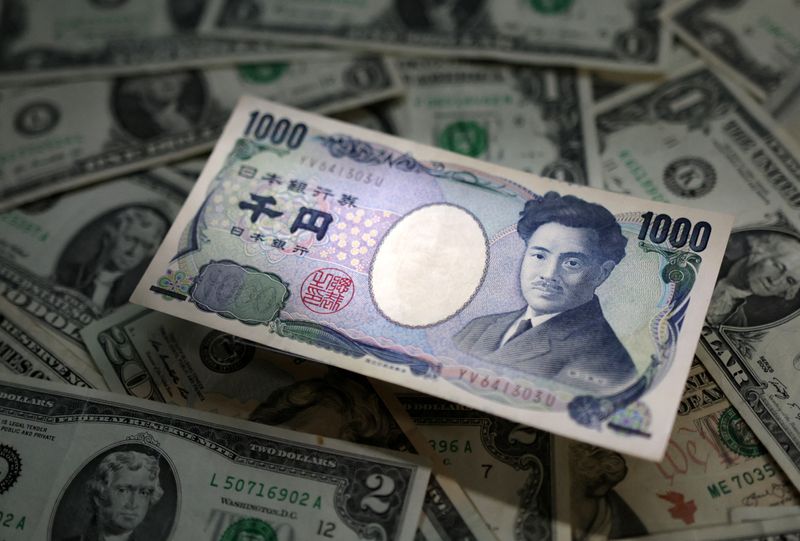By Kevin Buckland and Sruthi Shankar
(Reuters) – The Japanese yen and Swiss franc firmed against the dollar on Wednesday as investors rushed to safer assets following a sharp sell-off on Wall Street in the previous session, fueled by worries about U.S. economy valuations and the technology sector.
The catalyst was apparently some weak US manufacturing data, which fueled concerns of a hard landing for the world’s largest economy, with traders already nervous ahead of crucial monthly payrolls data on Friday.
US stock indexes fell on Tuesday, with AI chip giant Nvidia (NASDAQ:) down almost 10%. The risky mood spread to Asia and Europe on Wednesday.
“It’s a bit reminiscent of the sell-off at the beginning of August, when you didn’t really need a catalyst. It’s just that you’re sitting on top of risky assets,” said Alex Jekov, head of G10 FX strategy at BNP Paribas (OTC:) .
“The dollar is softer against low-yielding currencies as they get a bid from the risky environment. But what is different from August is that American interest rates do not participate as much. It seems to be mainly a stock story. “
The yen strengthened as much as 0.4% to 144.89 per dollar before last rising around 0.2% to 145.195 as of 0902 GMT, following a 1% rally overnight.
The dollar/yen hit a multi-month low of 141.68 on August 5, after surprisingly weak US payrolls data and a Bank of Japan rate hike triggered a massive unwinding of yen-funded carry trades.
VACANCIES FOCUS
Risks to the US soft landing scenario – which has been gaining traction in markets recently – led traders to increase the odds of a Federal Reserve rate cut this month by 50 basis points to 37% from 30% a day earlier, according to the CME. Group FedWatch tool (NASDAQ:).
Economists polled by Reuters expect Friday’s report to show an increase of 165,000 U.S. jobs in August, compared with an increase of 114,000 in July.
Ahead of this, investors will be closely watching job openings on Wednesday and unemployment claims on Thursday.
U.S. markets were closed Monday for Labor Day, returning Tuesday to a weak survey from the Institute for Supply Management that showed factory activity in the country would remain subdued for some time.
“That should have been a gain, but actually fell, and has once again left people wondering whether the Fed may be too late to act,” said Sam Stovall, chief investment strategist at CFRA.
The Swiss franc, another safe haven, rose about 0.2% to 0.8487 per dollar.
The euro was flat at $1.10525, recovering from marginal declines earlier in the session.
Business activity in the eurozone got a boost last month as France hosted the Olympics, but the bloc’s slump is likely to return once the Paralympic Games are over as demand remains weak, a survey showed.

Sterling was flat at $1.3117, after falling 0.23% overnight, while falling a further 0.1% to $0.67035, ending Tuesday’s 1.2% decline was continued.
Cryptocurrencies also faltered, with bitcoin and ether falling about 2.4% each.


